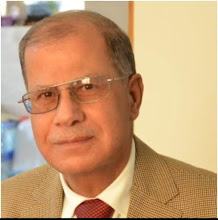The 10th of Muharram 61 Hijiri, Noon
Then one by one each companion of the Imam went and died until Zohr time when Saeed Ibn Abullah al Bijilly came forward and informed the Imam that it was prayer time for Zohr. Battle was raging, arrows were coming towards the Imam's camp, how could they have formed lines for prayers. But they stood in single foil to perform their last prayers while two companions of the Imam Saeed and Zohair stood in front of this line to hold back all the arrows that were coming towards them. Once the Imam finished the last words of the prayers these two soldiers died of exhaustion. The Last of the companions of the Imam died and only the relatives remained. First to go was Imam's son Ali Akber who fought bravely but thirst for three days was the most important factor in the fall of these martyrs. He was also killed and then Imam's nephew Qasim went and was killed. Then four of his brothers, Osman, Jafar, Abullah and Abbas were killed. Imam then brought his 6 month old son Ali Asgher. He brought him in his arms under the shade of his cloak. He told the audience, "This baby has not done any harm to you. He is thirsty, give him some water." The Commander of Yazid's army ordered Hurmula who was the best marksman to kill the baby. Hurmulah pulled the bow and the arrow killed the baby instantly. Imam brought the baby near the camp, informed his mother of the martyrdom of the baby. He then buried the baby in the sand. Afterwards Imam himself went for battle. But before that he introduced himself again that he was the grand son of the Prophet in case anyone had any doubts about him and that his guilt was only to refuse to accept the Oath of allegiance of the Tyrannical ruler Yazid.
Beheading Imam Hussain
The enemy was thirsty for the blood of the Imam, they were blind in their eagerness to kill the last of the family of the Prophet. They fell upon his injured and tired body like blood hounds and soon the Imam was also killed. The battle ended in one day. The orders were given to behead Imam Hussain, his male members and companions who fell martyrs in battle. Their heads were wedged into arrows and then carried aloft. These heads of Muslim martyrs, considered as war atrophies, moved on a long exhausting journey, amidst hot sun and arid desert and misery and suffering of every sort, from Karbala via Tikrit, Mosul and Aleppo to Damascus to which the Family of Imam Hussain ( Imam Ali Zain-aAbideen, sister, daughters and kins, all are regarded as Ahlu Bait Al-Nibuwa) were carried as slaves to meet the despot Yazid who, ironically enough, rendered himself and is so rendered nowadays as Muslim Caliphate despite all the crimes committed and genocide of the sacred family of Prophet Mohamad!!!!!!!!!!!!!
The slaves then were ordered to go back to Madina. On their way, they visited the graves of the dead men in Karbala, now buried.
The 10th of Muharram 61 Hijiri, Night
The evening of the 10th was the darkest for the women and children of the family of the Prophet. Camps were set alight and burnt, their possessions were looted. It was late at night while they were huddled together waiting for further tortures from the enemy side, that they saw the wife of Hur coming towards them with food and water. They were hungry and thirsty but none of them was keen to take anything, not even the youngest of the children. Imam Hussain's youngest daughter Sakina took the tumbler of water and ran towards the open field. Her aunt Zainab asked where was she running to and she replied, her little brother Ali Asgher was thirsty, she was taking some water for him, not knowing that little Ali Asgher was already dead, being the victim of Hurmula's arrow.






















